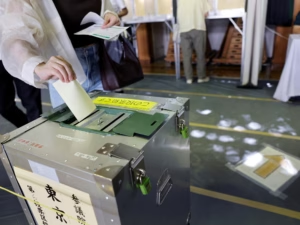The development of natural gas resources in the Gaza Marine field would be assured by the recognition of Palestine as a state, according to an expert involved in the stalled project. Michael Barron, the author of a book on Palestine’s untapped gas reserves, suggests that the field could generate $4bn in revenue at current prices, with the Palestinian Authority (PA) potentially receiving $100m a year over 15 years. This revenue, while not making Palestinians the next Qataris or Singaporeans, would be their own and not aid, which the Palestinian economy remains dependent on.
Plans to develop the field have stalled over nearly 30 years due to legal controversies over ownership. A law firm representing Palestinian human rights groups has warned Italy’s state-owned firm, ENI, against exploiting the gas fields in an area known as Zone G, where six licenses were awarded by Israel’s energy ministry, claiming that roughly 62% of the zone lies in maritime areas claimed by Palestine and thus Israel cannot have validly awarded any exploration rights.
Palestine declared its maritime borders and exclusive economic zone when it acceded to the UN Convention on the Law of the Sea (UNCLOS) in 2015, with a detailed claim made in 2019. Israel is not a signatory to UNCLOS. Barron argues that recognition of Palestine, particularly by states with large oil firms, would end legal ambiguity, providing the PA with a secure source of income and regular energy supplies independent of Israel.
ENI has stated that licenses have not yet been issued and no exploratory activities are in progress since the legal letter. Another group, Global Witness, claims the East Mediterranean Gas pipeline running through Palestinian waters to Egypt is unlawful, providing no revenue to the PA. The Oslo Accords of 1993 give the Palestinian National Authority jurisdiction over territorial waters and the power to legislate and award licenses for oil and gas exploration, aiming to increase Palestinian dependence on Israel while separating Palestinians and Israelis.
Gas was discovered in the Gaza Marine field in 2000, initially intended to end the Gaza Strip’s energy shortages by being used by its sole power station. However, the project faced issues of commercial viability and legal ambiguities over the PA’s sovereignty to award licenses. After Hamas took control of the Gaza Strip in 2007, Israel blocked the development, leading BG Group to put the project on hold and eventually quit. In June 2023, Israel approved plans for an Egyptian firm, EGAS, to develop the field, only for the war in Gaza to start.
Gaza Marine is estimated to contain only 30 billion cubic meters of natural gas, a small fraction of the more than 1,000 BCM in Israel’s territorial waters. Barron argues that with recognition of a Palestinian state, Israel would have no motive or legal right to block Palestine from exploiting its most significant natural resource.
The controversy over private sector investment in Israel’s occupation of Palestine came into focus with a UN special rapporteur’s report warning corporations against sustaining an unlawful occupation, a claim rejected by Israel.
Source: https://www.theguardian.com/world/2025/jul/20/recognised-palestinian-state-could-develop-disputed-gas-resources-expert-says








